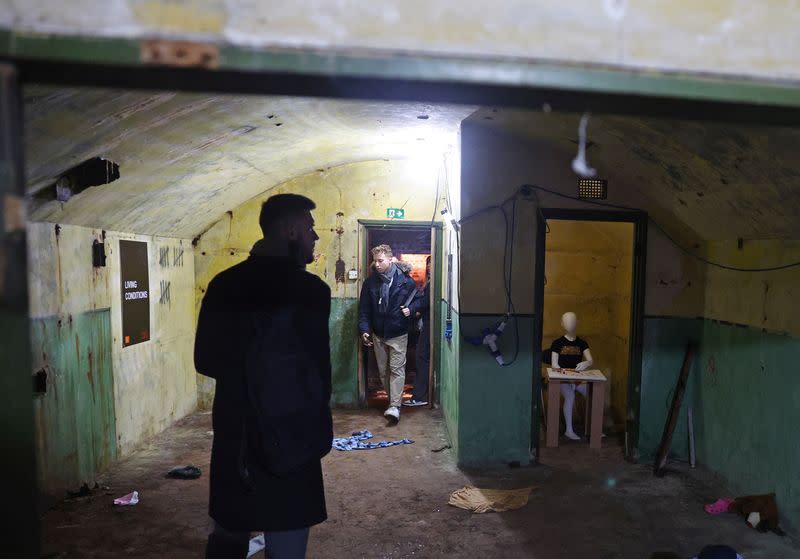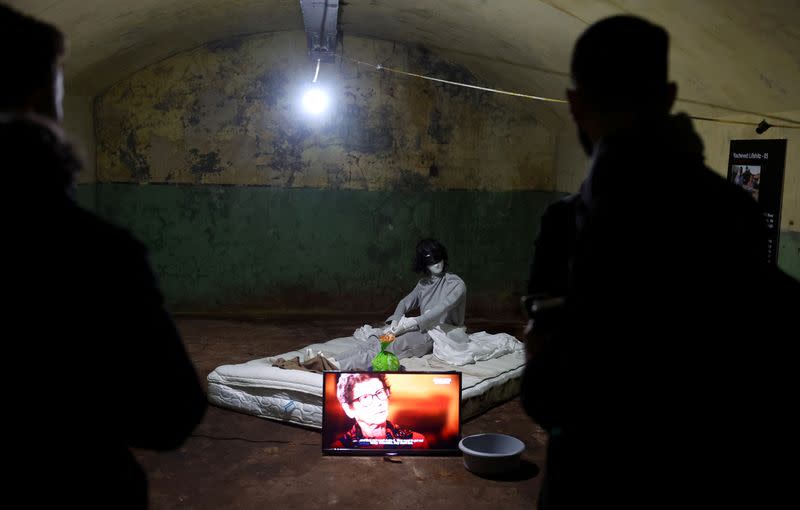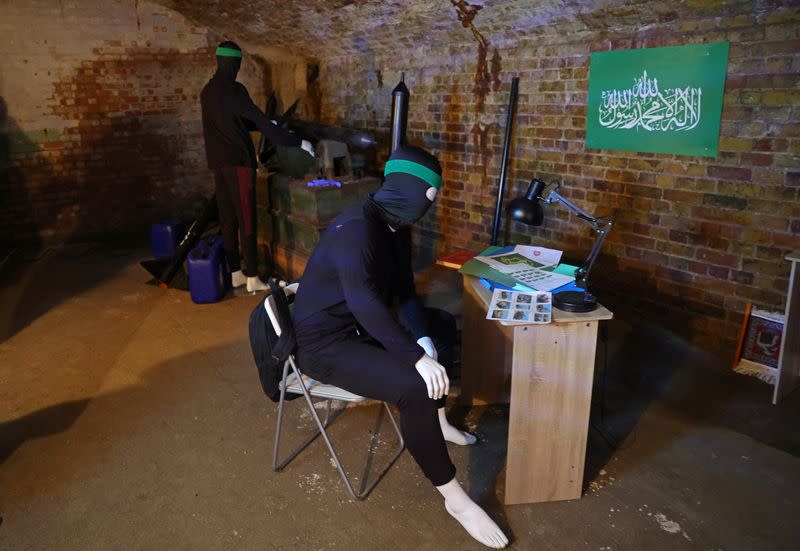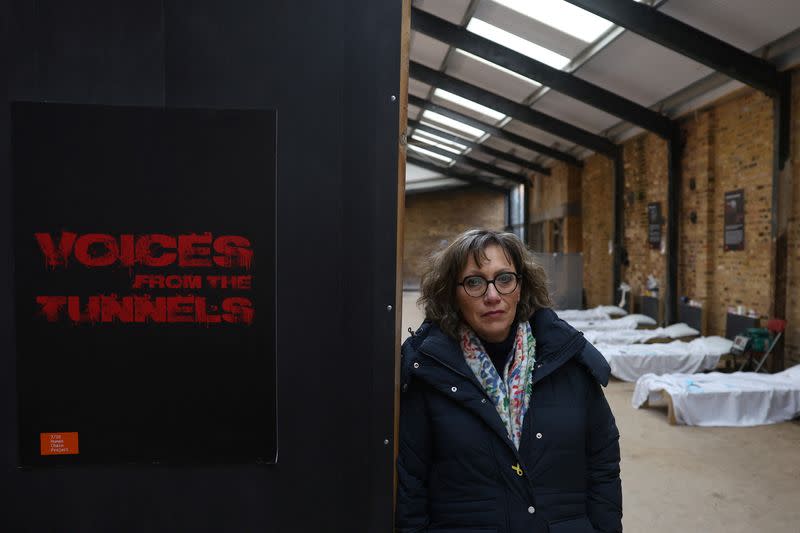London hostage exhibition seeks to recreate reality of Gaza captivity
By Michael Holden and Jonathan Saul
LONDON (Reuters) - A new exhibition comes to London this week aiming to bring to life the experience of Israeli hostages who have spent more than 100 days in captivity after their kidnap by Hamas militants on Oct. 7.
Staged in a derelict building in east London and based on descriptions by some of the freed hostages, the "Voice from the Tunnels" installation seeks to recreate conditions endured by the captives, highlighting their plight as part of efforts to speed the release of the more than 130 still being held.
"This was created as the first attempt to describe what the tunnels look like, the conditions in captivity look like," said Orit Eyal-Fibeesh, co-founder of the 7/10 Human Chain Project behind the exhibition. "We have interviewed hostages who returned from Gaza and this was created based on their stories."
In the dank, claustrophobic basement of the building, the exhibition features videos detailing news reports and footage of the Oct. 7 attacks, and depicts how the captives are held, along with some of their testimony.
Ayelet Svatitzky, 46, whose 79-year-old mother was held by Hamas for 49 days while her brother Nadav Popplewell, 51, remains in captivity, emerged from the exhibition in tears.
"I managed to watch for about three minutes before I had to walk out crying. It was very emotional and very intense for me realising this was what my family members have gone through, are going through still," said Svatitzky, whose elder brother Roi was also killed in the Hamas attacks.
Eylon Keshet, a cousin of Yarden Bibas who is still being held along with his wife Shira and children Ariel, 4, and baby Kfir whose first birthday falls on Thursday, said he had travelled from Israel to attend a rally and view the exhibition.
"The reason I'm here ... is to ask any human being with a conscience and a family to stop these atrocities and this evil and understand that these are real children that are rotting in captivity and that their survival chances are dwindling by the minute," Keshet, 30, said.
Eyal-Fibeesh said the temporary exhibition would welcome visits from politicians, journalists, antisemitism campaigners, and figures from schools and universities. However, it will not be open to the general public, partly because of a limit on visitor numbers as well as security concerns.
Husam Zomlot, head of the Palestinian Mission in London, was dismissive of the exhibition, saying it was Israeli propaganda.
"They have lied about everything down the road. I do not take any of Israeli propaganda seriously, nor should you," he told Reuters.
While it has had assistance from Israeli authorities, Eyal-Fibeesh said the project was non-political and had no agenda other than the goal of bringing the remaining hostages home.
The Oct. 7 attack killed more than 1,200 people, the biggest single day loss of life since Israel's founding in 1948. An Israeli military air and ground campaign in response has killed some 24,100 people, according to health officials in Hamas-ruled Gaza.
(Editing by William Maclean)






